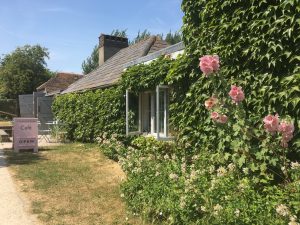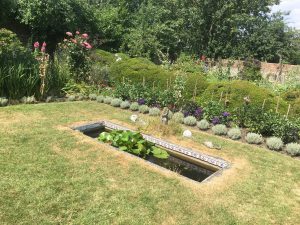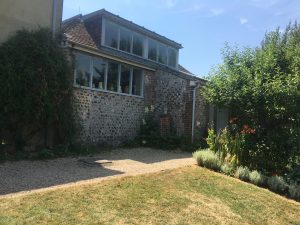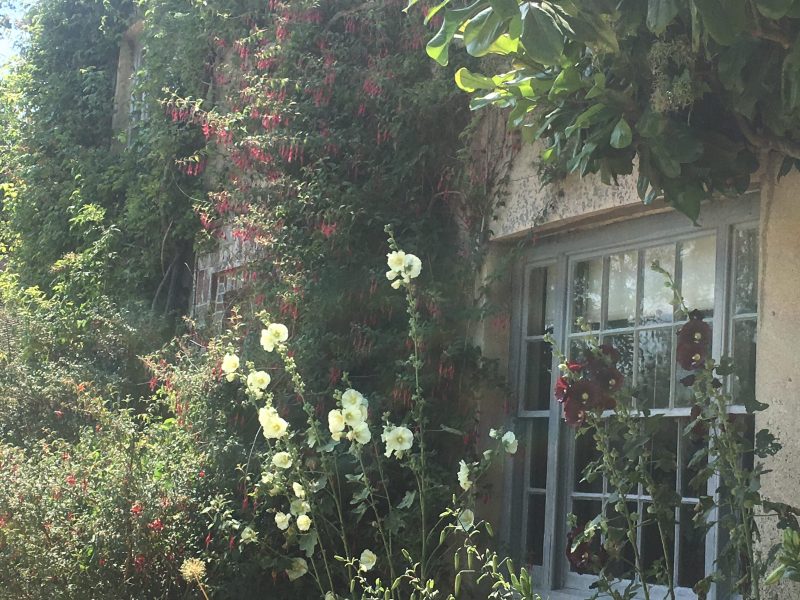An hour’s drive from Rye, in Firle near Lewes deep in the Sussex countryside, is Charleston, whose claim to fame lies in the household who lived there for some fifty years. In 1916, Vanessa Bell the post impressionist artist, and Duncan Grant, the British artist and designer moved into this 17th century farmhouse The two of them, with Roger Fry, the art historian and critic, were the centre of what is known as the Bloomsbury Group. As this article is about the house and garden in which they lived, and not about the lives and loves of this complex and distinguished group, it is hoped the reader will want to find out more from the numerous websites, articles and books devoted to them.

The house and gardens are reached from a long drive off the A27, and presents a lovely picture on a summer’s day. The visitor passes the excellent café and shop, and after collecting a pre-ordered ticket, or buying one in the shop, turns left into the front gravelled drive of the farmhouse. Facing the house is a big lily pond, surrounded by mature trees and the rest of the garden can be sighted through an arch in the old flint walls.

There are ten rooms to see, led by knowledgeable guides in parties of a maximum of ten visitors. The tour takes an hour, and if unfamiliar with the house, provides a wealth of information on the inhabitants and especially the extraordinary hand painted walls, doors, furniture and objects. As well as the paintings on the doors, many by Duncan Grant and the walls, done freehand and in vibrant colours and designs by Vanessa Bell, there are ceramics and petit point embroidery. The difference in the designs from that to be expected from a household of the first world war, is amazing and bears comparison with the safe and traditional sewing of other homes, like Great Dixter House and Garden at Northiam.
The colours, shapes and designs are truly ground breaking . The voluptuous ladies adorning the fireplaces and the fabric designs, (the fabric can still be purchased from the shop), enhance the overall scene. To quote Vanessa Bell’s son, Quentin “restoration or conservation seemed too dull a solution: it was much more fun to invent something new and change the entire aspect of the room”

The tour ended in the studio, built to plans by Roger Fry in 1925, which must have been the hub of the artistic activity , with the fireplace painted by Duncan Grant and personal objects all over the room, including a beautiful sculpture of Vanessa Bell’s sister, Virginia Woolf, and photos of Vanessa herself. The doors were opened into the garden and so the tour ended.
Vanessa Bell died in 1961 at Charleston and Duncan Grant in 1978. The house fell into disrepair, until rescued by the Charleston Trust, set up in 1980. It was opened to the public in 1986.
Charleston is well worth a visit. It may not be to everyone’s taste, but it is such an example of imagination and creativity, it must interest and amuse.
The house and garden are open until October 28 2018. Tickets: Standard £14.50, concessions £12.50, tickets can be booked online. Tours last an hour. Sundays and Bank Holidays no guided tours. More information can be found on the website.
Photos: Gillian Roder



